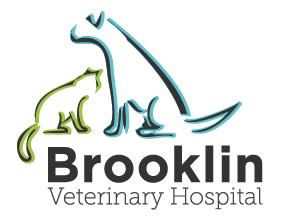Library
-
Breeding dogs is a great responsibility that should not be done just because an owner wants puppies from their beloved dog. Important considerations are discussed. Many puppies are abandoned at dog shelters because of inappropriate breeding practices. There are usually many dogs looking for homes and an owner can find the dog they are looking for through shelters or rescue organizations.
-
Transitioning to a new home is a big step for even the most playful and outgoing kitten. Slowly introduce your kitten to your home, family members, and other cats or dogs in the home. Begin training your kitten as soon as they are comfortable with all the members of your household.
-
Bromethalin is a common rodenticide. Cats are commonly poisoned when they find loose bait placed for rodent control. Relay toxicity, where poisoning occurs due to ingesting rodents that died from bromethalin, has been anecdotally reported in cats. Clinical signs can develop as soon as two hours after exposure and as long as 24-48 hours after exposure. There is no antidote for bromethalin, so prompt induction of vomiting by a veterinarian can be lifesaving. Prognosis is poor to grave if severe clinical signs develop such as seizures, paralysis, or coma. Patients with milder clinical signs may recover after several weeks but may have permanent neurologic damage.
-
Bromethalin is a common rodenticide. Dogs are commonly poisoned when they find loose blocks placed for rodent control, or they access the bulk container. Clinical signs can develop as soon as 2 hours after exposure and as long as 5 days after exposure. There is no antidote for bromethalin, so promptly inducing vomiting can be lifesaving. Prognosis is poor to grave if severe clinical signs develop such as seizures, paralysis, or coma. Patients with milder clinical signs may recover after several weeks but may have permanent neurologic damage.
-
Bromfenac ophthalmic is a topical eye NSAID (Non Steroidal Anti-Inflammatory Drug) used off-label in in a variety of animal species to treat inflammation of the eye. It is often used post-operatively in animals who have undergone cataract surgery. It may also be used to treat allergic eye conditions such as conjunctivitis.
-
Bromides are given by mouth and are used off label to treat seizures in dogs. Common side effects include sleepiness, mild vomiting, restlessness, increased or decreased appetite, constipation, increased thirst, and increased urination. Do not use bromides in cats or in pets that are allergic to it. If a negative reaction occurs, please call your veterinary office.
-
Brucellosis is a contagious bacterial infection that can cause a number of reproductive problems, including infertility and abortion in breeding dogs. Male dogs infected with brucellosis develop epididymitis, an infection of the testicle. Female dogs infected with brucellosis develop an infection of the uterus. The infection is usually diagnosed by a blood test (rapid slide agglutination test). Treatment with antibiotics is not significantly effective and infected dogs should be removed from the breeding population. In the United States, brucellosis is a reportable disease.
-
The sole is the insensitive protective undersurface of the horse's foot in which are the highly vascular (rich in blood supply) and sensitive (rich in nerve supply) tissues (laminae) that connect the hoof to the pedal bone.
-
Brumation is a state of sluggishness or inactivity that wild bearded dragons undergo in extreme environmental conditions in their native Australia. Pet bearded dragons are often assumed to be undergoing brumation inside a normal household setting, but in many cases, the pet is sick. A veterinary examination is highly recommended for any reptile showing sings of lethargy or inactivity.
-
Some 50-80% of all cats over the age of four have periodontal disease (infection of the tissues surrounding the teeth). Brushing three times a week is the minimum recommendation to help remove plaque and prevent tartar accumulation. To be successful at brushing your cat's teeth, you must make it a positive experience for both of you. Do not use human toothpaste or baking soda. A list of dental products and diets that have been accepted by the Veterinary Oral Health Counsel can be found at vohc.org.



